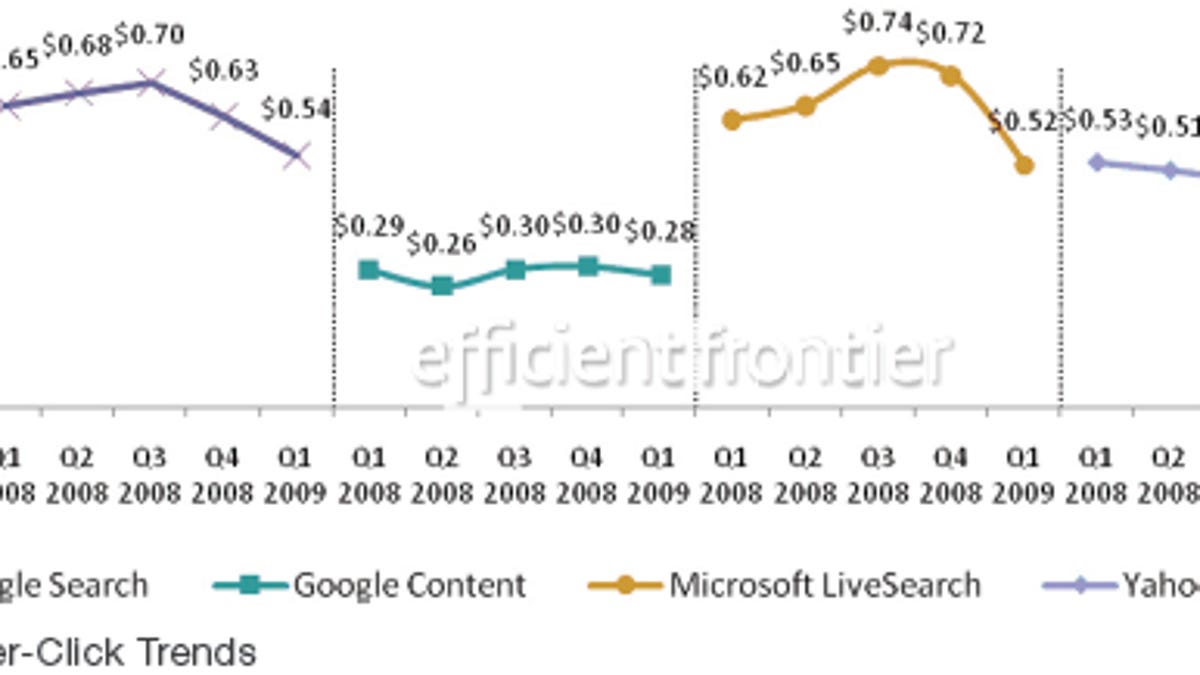Study: Less money spent per search ad
Search engines now get less revenue per ad clicked in the U.S., but they're showing ads more often, and people are searching more often, Efficient Frontier reports.

The recession is cutting into the price advertisers are willing to pay to show their ads on search engines, according to a report released Tuesday.
Advertisers bid to have their ads shown next to search results, paying only when people actually click on the ad, but on average, this cost per click (CPC) in the United States is declining on all three major search engines, according to a study by Efficient Frontier. Comparing the first quarter of 2009 to the fourth quarter of 2008, Google's CPC dropped 14 percent, Yahoo's dropped 16 percent, and Microsoft's dropped 28 percent.
Overall, the cost per click declined 19 percent, compared to the year-earlier quarter, and 13 percent, compared to the previous quarter, "indicating that the entire marketplace is deflating, as advertisers cut budgets and spend less," Efficient Frontier said. That's a grim statistic for the search sites, all of which will report first-quarter financial results this week or next.
However, cost per click doesn't tell the whole story. For one thing, search engines are showing ads more frequently, and for another, search volume in general is increasing, both of which mean that there are more opportunities to show ads. In other words, search engines have the chance to make up in volume what they lose in revenue per ad.
In the first quarter, impressions--the number of times an ad was shown, if not necessarily clicked on--increased 11 percent compared to the year-earlier quarter, the study said; Google's 20 percent increase compared to Yahoo's 1 percent decrease and Microsoft's 10 percent increase.
What fraction of ads did people actually click on? Overall, more than in the past. For Google, 2.38 percent of the time, an increase over 2.27 percent in the fourth quarter but a decrease from 2.55 percent in the year-earlier quarter. Yahoo's click-through rate steadily increased over the last year to 1.16 percent, while Microsoft's declined to 2.19 percent.
Another statistic the study showed was the click-through rate on ads Google shows on its network of third-party sites that have elected to use its AdSense service, which supplies ads based on the content on the Web page. Here, the click-through rate is much lower than for search results, but it's increasing. A year ago, the rate was 0.08 percent, but in the first quarter of 2009, it rose to 0.20 percent, Efficient Frontier said.
Another finding: search advertising is showing a better return on investment as advertisers cut back on poorly performing ads.
The return on search-ad investment increased 10 percent for ads taken on Google, 12 percent for those on Yahoo, and 43 percent for those on Microsoft, Efficient Frontier said.

